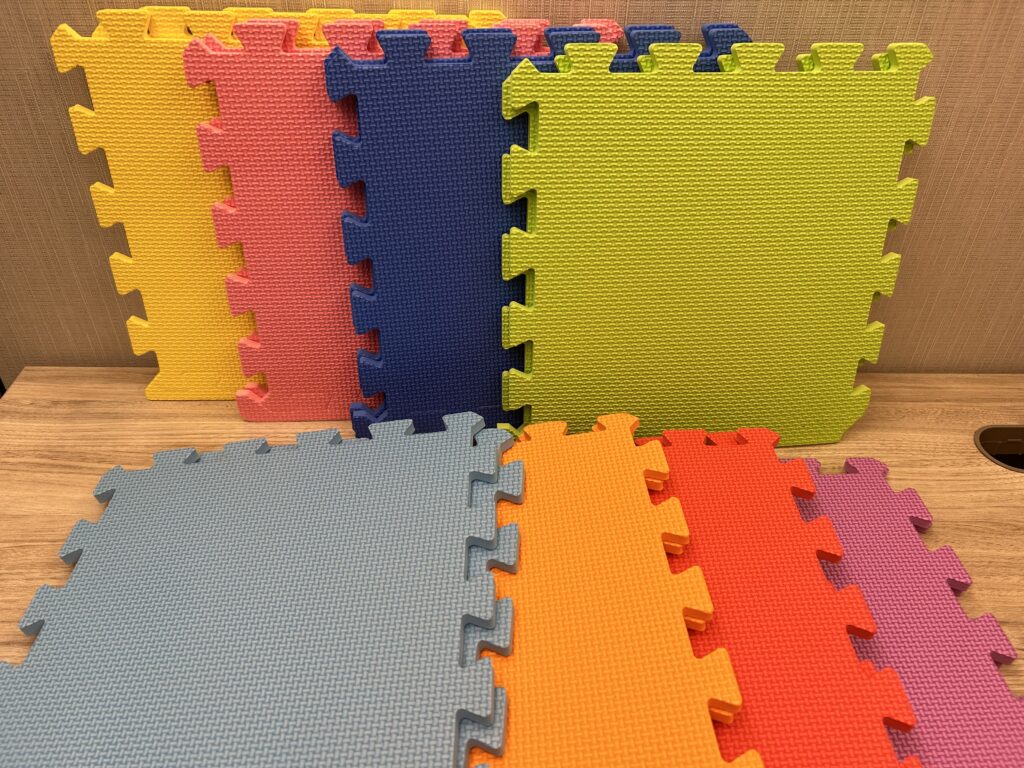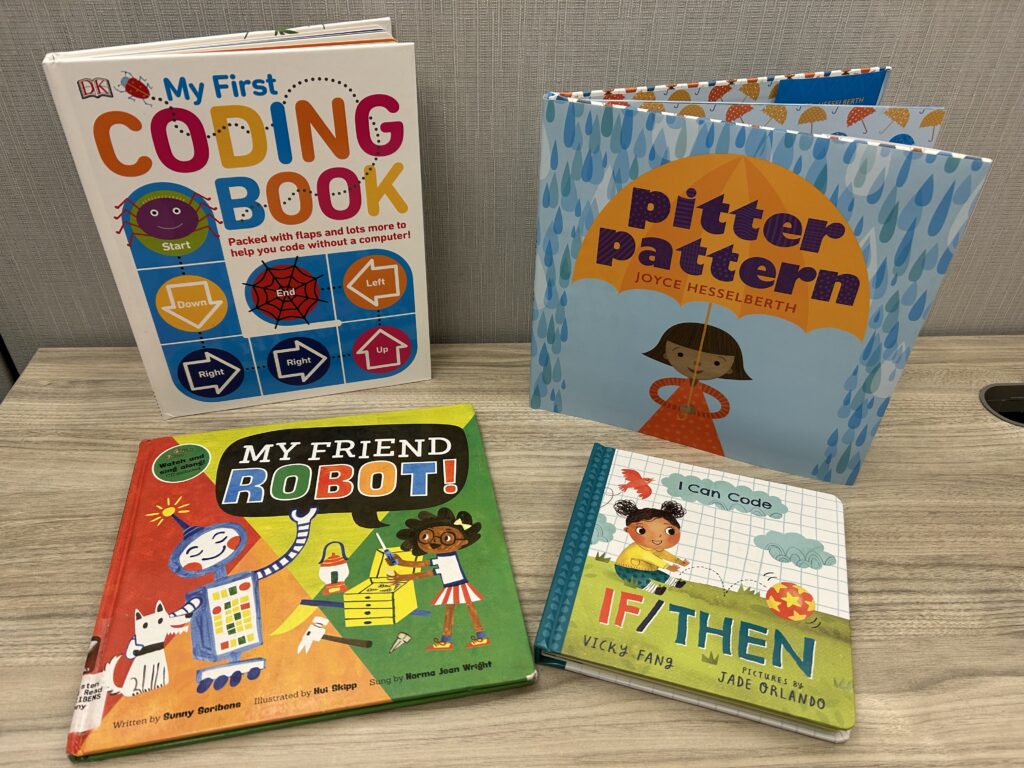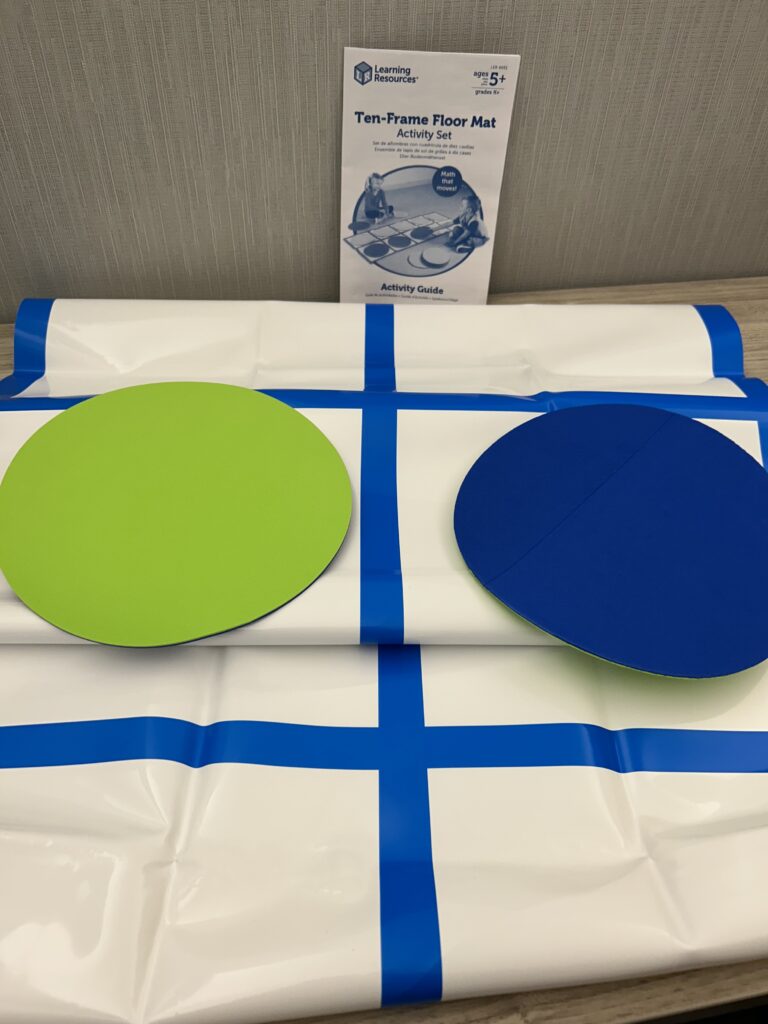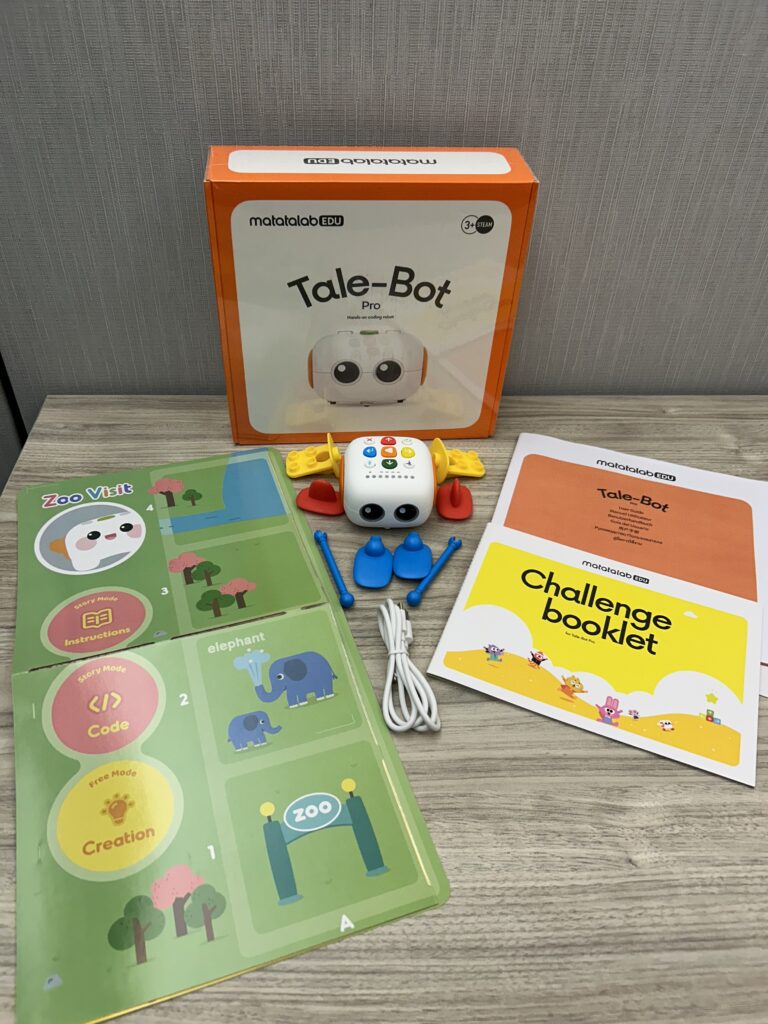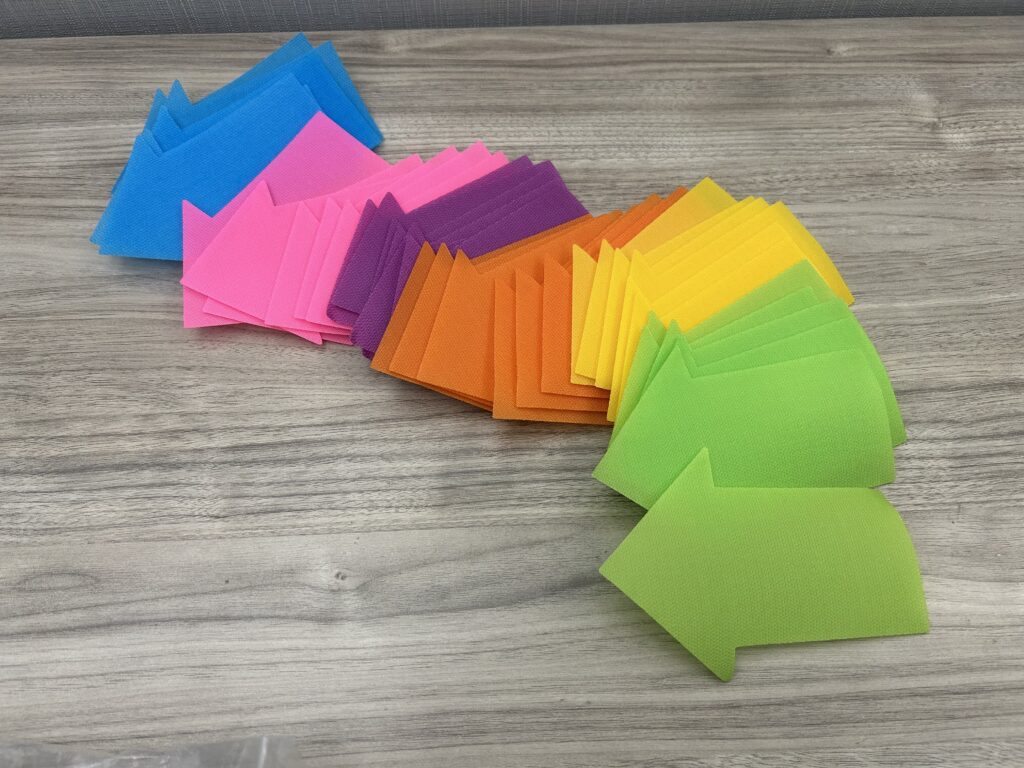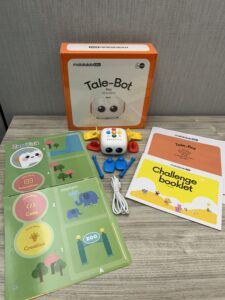STEAM (science, technology, engineering, arts, and math) programs support school readiness in a variety of ways beyond building cognitive skills. There are activities that can support physical wellbeing, social-emotional development, and even language and literacy within these types of programs. Support scientific inquiry in programs rather than just scientific knowledge by encouraging caregivers to prompt learners with questions, vocabulary and skills to try. Allowing children to create, explore, ask questions, and make their own discoveries coupled with caregiver scaffolding is called guided play and has positive effects on a child’s grasp of concepts and later approach to learning.
Coding
Early coding, or precoding, offers children experiences that integrate communication, problem solving and collaboration. These are 21st century skills that are valuable for children’s future success in our digital world. Many of the activities in this kit allow children to think through algorithms or steps of tasks, while this isn’t necessarily coding, it is a precursor skill.
Audience
This kit will allow library staff to present play-based, interactive programs on coding for young children, ages 2 to 7. However, consideration should also be given to adult caregivers bringing the children to your programs. As you use this kit, be mindful of the ways in which you’re being a role model to FFN as you engage young children in concepts by asking open-ended questions and encouraging experimentation.
Contents
- 8 MatataLab Talebot Pros
- 8 Matatalab Activity Boxes
- Learning Resources ten frame floor mat
- Foam Puzzle Floor Mat
- 2 Eamay Soft Foam Dice
- 36 Velcro Arrows
- One copy of each of the following books:
- My First Coding Book by DK
- My Friend Robot by Sunny Scribins
- Pitter Pattern by Joyce Hesselberth
- I Can Code: If/ Then by Vicky Fang
Resources
- Creating Coding Stories and Games | NAEYC
- Coding Concepts for Preschoolers
- Course on Code.org
- Creating Coding Stories and Games
- The Library Voice: Add Robots & Coding To Storytime With These Fun Picture Books! (van meter library voice.blogspot.com)
- Storytime Theme: Patterns
